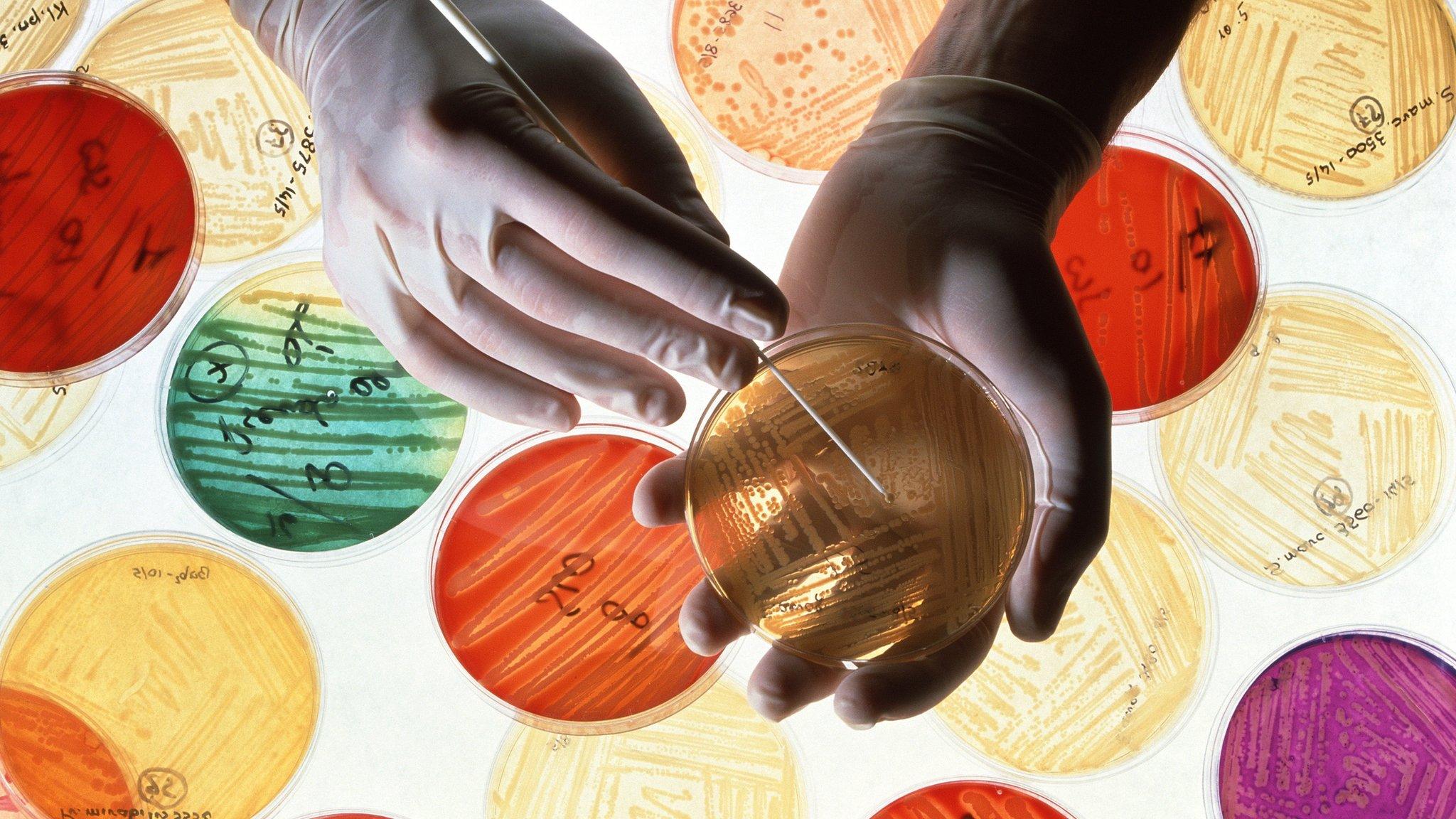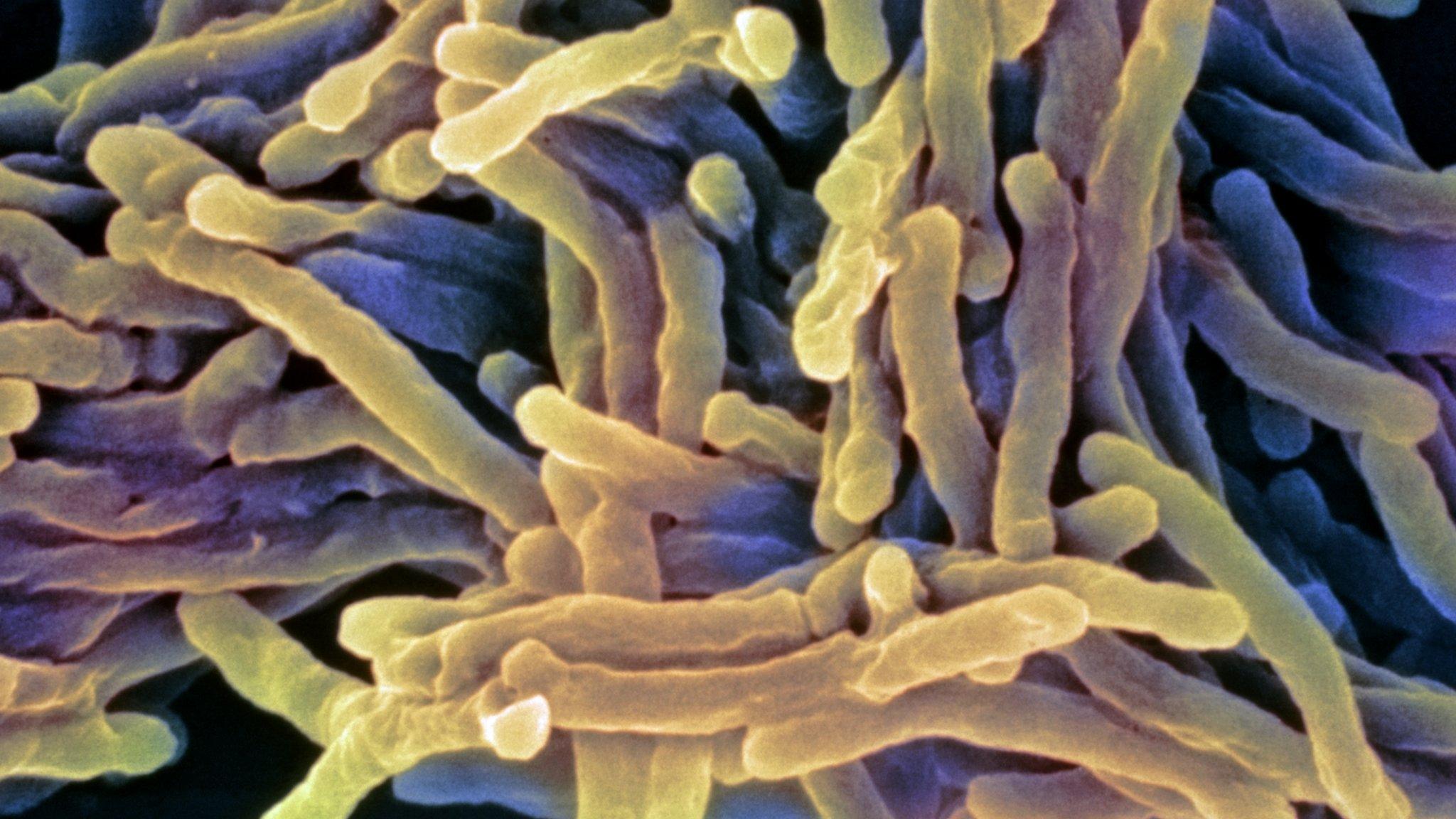Antibiotic-resistant E. coli studies launched
- Published

Most strains of E. coli are harmless, but some cause disease
A UK-wide investigation into the spread of antibiotic-resistant E. coli has been launched by Public Health England.
The resistant strains of the bacterium, which can cause urinary tract infections and blood poisoning, are harder to treat and more deadly than non-resistant E. coli.
The spread of resistance in healthy people, patients, farm animals, sewage and slurry will be assessed.
Experts said it was a growing risk in hospitals.
The series of studies will look at ESBL-producing E. coli. They make enzymes called Extended-Spectrum Beta-Lactamases which can break down antibiotics such as penicillin.
The levels of ESBL-positive E. coli started increasing around a decade ago.
Now, of the 30,000 cases of E. coli blood infections reported each year, 10% are thought to be resistant.
Stopping resistance
Prof Neil Woodford, head of antimicrobial resistance at Public Health England, said: "The risks posed to human health by resistant E. coli from non-human reservoirs are not fully understood.
"This study is very important because its results will help to shape future intervention strategies to reduce the spread of these antibiotic-resistant strains of bacteria and to reduce the numbers of infections that they cause."
Infections can be treated with other classes of antibiotics but doctors do not know with which strain a patient has been infected.
It means patients could be given inappropriate drugs which will not clear the infection, increasing the risk of death.
Dr David Wareham, a consultant microbiologist at Queen Mary, University of London, said: "It takes several days to grow the bacterium and at least another 24 hours to get a resistance test so without better diagnostics we are pushed by the fear of ESBLs into using more broad spectrum antibiotics which exacerbates the problem and drives resistance.
"It is certainly moving up the risk register in hospitals."
Prof Peter Hawkey, from the University of Birmingham, said international travel was "undoubtedly" a major risk factor for picking up resistant E. coli infections.
"If you all went to India and were perfectly well, no diarrhoea, 85% of you would be carrying these resistant organisms.
"In India if you take all the E. coli, 60% of all E. coli-causing infections are ESBLs. At the moment it's about 10% in the UK.
"We don't really want to wind up with a 60% scenario because then we have to use these last-resort antibiotics."
- Published19 November 2015

- Published19 November 2015

- Published11 March 2013

- Published2 June 2011

- Published24 January 2013

- Published16 November 2012
